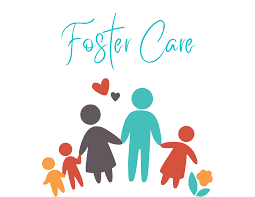Children in foster care face unique challenges that can impact their overall well-being, and schools play a critical role in ensuring these children are supported and protected. From addressing educational gaps to providing emotional support, schools are often the safe haven where foster children can feel secure and thrive. This blog post explores the important role schools play in protecting children in foster care, offering insights into how educators and school staff can make a difference.
Understanding the Challenges Foster Children Face in Schools
Children in foster care often experience upheaval, trauma, and instability that can directly affect their ability to succeed in a school environment. Some of the challenges they face include:
- Frequent Moves: Many foster children are shuffled from one home to another, causing disruptions in their education. These frequent relocations often result in learning gaps, missed school days, and a lack of continuity in their education.
- Emotional and Behavioral Struggles: The trauma many foster children endure—whether due to abuse, neglect, or separation from their biological family—often manifests in the form of emotional or behavioral issues. Schools must be equipped to provide mental health support and create a nurturing environment to help these children cope.
- Stigma and Social Isolation: Foster children may feel different or be treated differently by their peers, which can lead to social isolation or bullying. Schools have a responsibility to foster inclusivity and ensure that these children feel accepted and supported.
Schools are not just places of learning for foster children; they can be pivotal in providing a sense of stability and normalcy. Educators, counselors, and school administrators must be aware of the unique challenges foster children face and work collectively to provide comprehensive support systems.
The Legal Obligations of Schools Toward Foster Children
Schools in the United States have a legal obligation to protect and support foster children under various federal and state laws. One of the key pieces of legislation is the Every Student Succeeds Act (ESSA), which includes provisions specifically designed to address the educational needs of foster children. ESSA mandates that:
- Immediate Enrollment: Foster children must be immediately enrolled in school, even if they lack the necessary documentation (such as birth certificates or immunization records) that is usually required for enrollment.
- School Stability: Whenever possible, foster children should remain in their school of origin, even if their foster home is in a different school district. This helps ensure continuity in their education.
- Transportation Services: Foster children must be provided with transportation services to ensure they can attend their school of origin.
- Educational Liaison: Schools must designate an educational liaison who advocates for foster children and helps them navigate any educational challenges.
These legal protections ensure that foster children receive the same educational opportunities as their peers and are not penalized for circumstances beyond their control.
How Schools Can Provide Emotional and Mental Health Support to Foster Children
Given the high levels of trauma many foster children experience, mental health support is a key component of their overall well-being. Schools can help by:
- Implementing Trauma-Informed Practices: Educators who are trained in trauma-informed practices are better equipped to recognize signs of trauma and respond with empathy. This can help create a safe space for foster children to express themselves without fear of judgment.
- Offering Counseling Services: School counselors can provide one-on-one support to foster children, helping them process their emotions and work through any challenges they may face.
- Building Trusting Relationships: Foster children often feel a sense of abandonment and may struggle to trust adults. Teachers and school staff should make an effort to build trusting relationships by being consistent, reliable, and supportive.
- Involving the Child’s Care Team: Schools should work collaboratively with foster parents, social workers, and other members of the child’s care team to ensure they are meeting the child’s needs both academically and emotionally.
Fostering Educational Success for Children in Foster Care
Academic success can be a significant challenge for foster children, who are often dealing with multiple factors that can impede their learning. Schools can help foster children succeed academically by:
- Providing Tutoring and Academic Support: Schools should offer additional academic support services, such as tutoring or after-school programs, to help foster children catch up on missed material and bridge any learning gaps.
- Offering Personalized Learning Plans: Because every foster child’s educational journey is unique, personalized learning plans that cater to their individual needs can help them succeed. These plans may include accommodations for learning disabilities, additional time to complete assignments, or alternative teaching methods.
- Involving Foster Parents and Caregivers: Foster parents and caregivers play a crucial role in supporting a child’s education. Schools should involve them in the child’s academic progress and offer resources or training to help them advocate for the child.
- Celebrating Achievements: Positive reinforcement is essential for foster children who may have faced rejection or failure in other areas of their lives. Schools should make an effort to celebrate their academic achievements, no matter how small, to boost their confidence and self-esteem.
The Role of Peer Support and Extracurricular Activities
In addition to academic and emotional support, peer relationships and extracurricular activities play a crucial role in a foster child’s school experience. Schools can encourage foster children to engage in social activities by:
- Promoting Inclusivity: Schools should foster an environment of inclusivity where all children, including those in foster care, feel welcome and accepted. This can be done through anti-bullying programs and school-wide initiatives that promote kindness and empathy.
- Encouraging Participation in Extracurricular Activities: Foster children should be encouraged to participate in sports, clubs, and other extracurricular activities. These activities provide a sense of belonging, help build social skills, and can be a positive outlet for their energy and emotions.
- Offering Peer Mentorship Programs: Schools can create peer mentorship programs where older students mentor foster children, helping them navigate school life and build friendships.
The Critical Role of Schools in Safeguarding Foster Children
In addition to providing emotional, academic, and social support, schools also play a vital role in safeguarding foster children from abuse or neglect. Teachers and school staff are often the first to notice signs of abuse, neglect, or distress in a child. Schools must ensure that all staff are trained to recognize these signs and know how to report concerns appropriately.
Schools can also serve as safe spaces for foster children, offering them consistency and protection during times of instability. By creating a supportive and protective environment, schools can play a key role in helping foster children overcome their challenges and build a brighter future.
How Our Child Protection Services Can Help
At CPS – Child Safety Advocates, we understand the complex challenges that foster children face in both their home and school environments. Our team of professionals is dedicated to ensuring that foster children receive the support they need to thrive. We work closely with schools, foster parents, and care teams to provide comprehensive solutions that address the needs of foster children. If you or someone you know is experiencing challenges related to foster care, reach out to us today for assistance.
Conclusion
Schools are uniquely positioned to play a crucial role in the protection and support of children in foster care. By offering academic, emotional, and social support, schools can help foster children succeed despite the challenges they face. With the right resources and collaboration between educators, foster parents, and care teams, foster children can overcome their obstacles and thrive in school and beyond.




